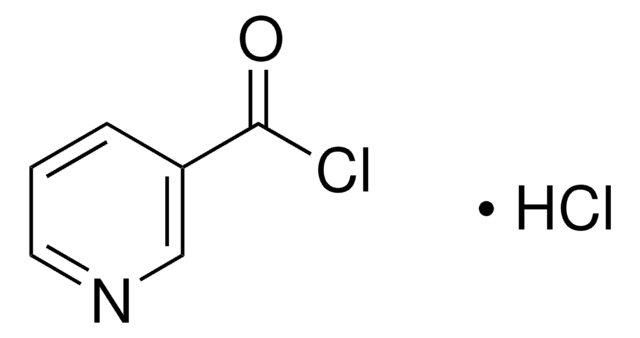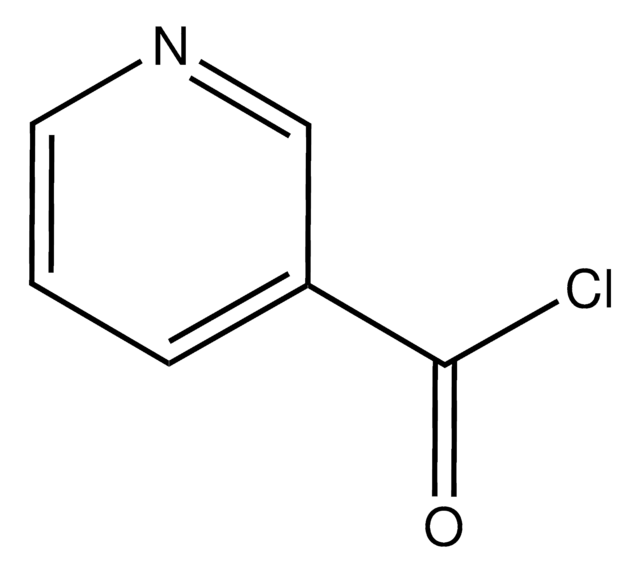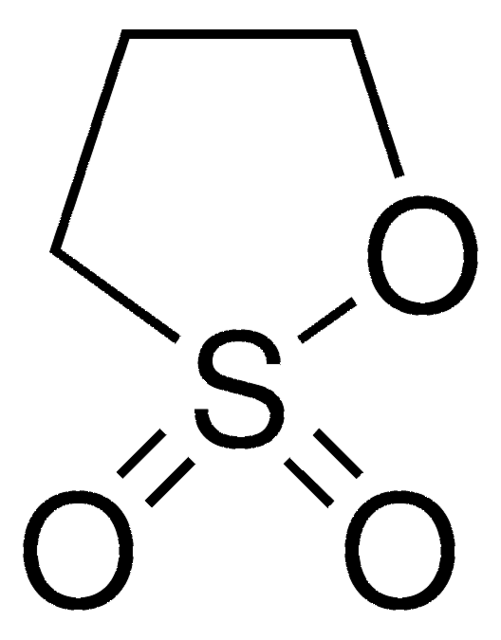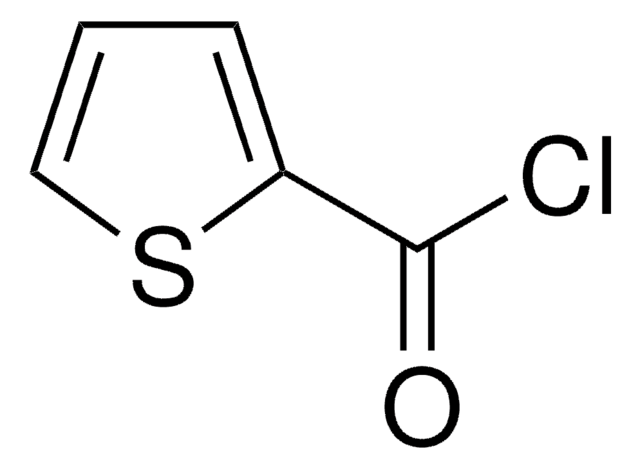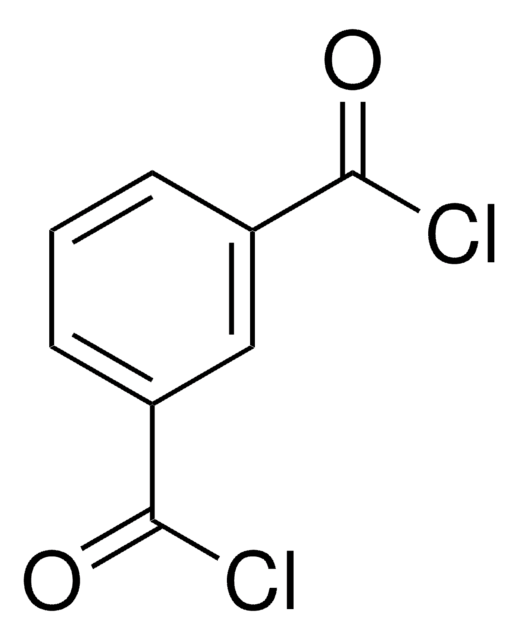228753
Isonicotinoyl chloride hydrochloride
95%
Synonym(s):
(Chlorocarbonyl)-4-(pyridinyl) monohydrochloride, 4-(Chloroformyl)pyridinium hydrochloride, 4-Nicotinoyl chloride hydrochloride, 4-Pyridinecarboxylic acid chloride hydrochloride, Isonicotinic acid chloride hydrochloride, Isonicotinyl chloride hydrochloride
About This Item
Recommended Products
Assay
95%
mp
159-161 °C (lit.)
solubility
methanol: soluble 50 mg/mL, clear to hazy, colorless to light yellow
SMILES string
Cl[H].ClC(=O)c1ccncc1
InChI
1S/C6H4ClNO.ClH/c7-6(9)5-1-3-8-4-2-5;/h1-4H;1H
InChI key
BNTRVUUJBGBGLZ-UHFFFAOYSA-N
Related Categories
Application
Signal Word
Danger
Hazard Statements
Precautionary Statements
Hazard Classifications
Eye Dam. 1 - Skin Corr. 1B
Storage Class Code
8A - Combustible corrosive hazardous materials
WGK
WGK 3
Personal Protective Equipment
Certificates of Analysis (COA)
Search for Certificates of Analysis (COA) by entering the products Lot/Batch Number. Lot and Batch Numbers can be found on a product’s label following the words ‘Lot’ or ‘Batch’.
Already Own This Product?
Find documentation for the products that you have recently purchased in the Document Library.
Customers Also Viewed
Our team of scientists has experience in all areas of research including Life Science, Material Science, Chemical Synthesis, Chromatography, Analytical and many others.
Contact Technical Service
